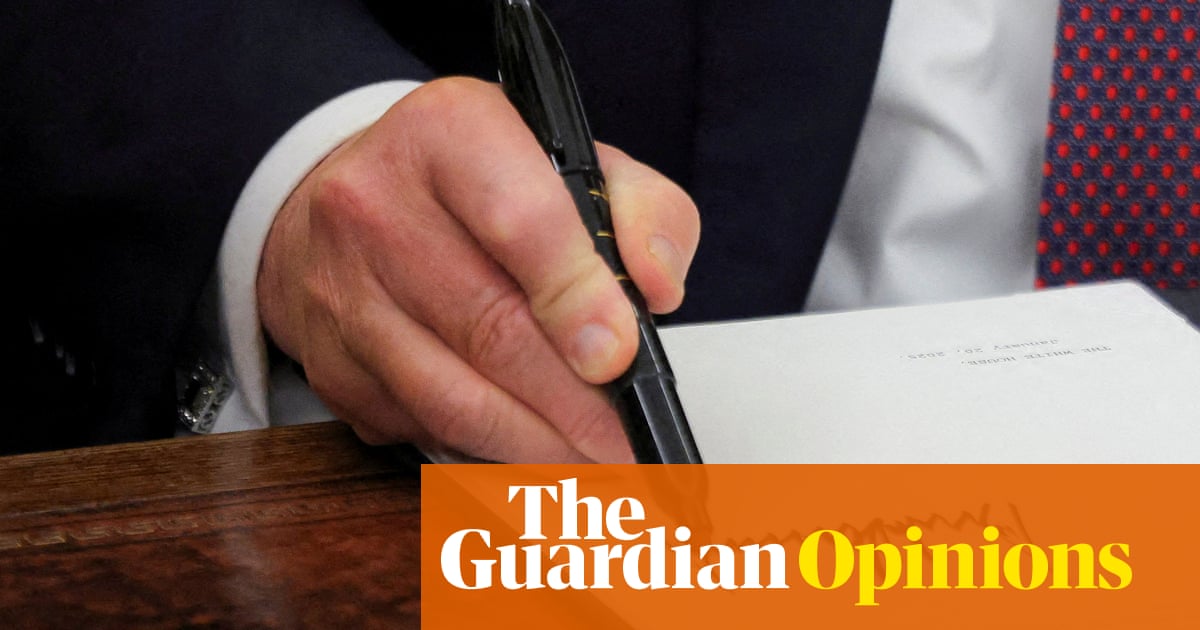This week, Trump issued two dozen presidential pardons to a motley crew of wrongdoers, including shady politicians, fraudulent CEOs and other wealthy ne’er-do-wells. On that list were the Louisiana rapper NBA YoungBoy (whose real name is Kentrell Gaulden) and the Chicago gangster Larry Hoover.
Regardless of where you stand on American carceral culture and what we know about the ways the criminal justice system squashes Black people who have the misfortune of interacting with it, Trump handing out pardons to Hoover and Gaulden isn’t the magnanimous or justice-focused move he wants us to believe it is. Instead, it’s a clear effort to garner support from the Black community by way of its big names.
Gaulden, for his part, was convicted on gun-related charges and sentenced to just under two years in prison. He hadalreadybeen released and this pardon just means he won’t have to follow through with his probation conditions.
For Hoover, Trump granted a commutation of his federal prison sentence; the former Gangster Disciples leader was serving six life sentences on conspiracy, extortion, drug and other criminal charges. Still, the 74-year-old won’t be coming home (he’s still on the hook for murder in the state of Illinois, a conviction that came with a hefty 200-year jail term).
So why is Trump pardoning exactly the kind of people – a gangster and a rapper – whom he despises, and whom he would typically disparage and cast as a danger to American society?
The answer is obvious if you’ve been paying attention: he’s done it before – and it seems to have worked.
A couple of reasons are often given forTrump’s apparent increase in supportfrom Black voters.
Some voters believedTrump’s claims that Black Americans saw an economic boostunder his first presidency, and that he achievedrecord low unemployment– which isn’t thefull story. This is not to mention the fact that Black voters have also become increasingly disillusioned with the Democratic party. Still, one has to wonder just how many of the Black voters who switched sides were won over by disingenuous moves like Trump’s pardons.
Probably the most damning indication of the way Trump views Black Americans – and the instincts that drive his political decisions – are his comments about Black people who have experienced the criminal justice system.
At a gala in South Carolina in 2024, Trump said he wasgettingmore Black support thanks to his criminal cases, because Black people, like him, have been historically mistreated by the criminal justice system.
“And then I got indicted a second time and a third time and a fourth time. And a lot of people said that that’s why the Black people like me because they have been hurt so badly and discriminated against,” he said. “They actually viewed me as I’m being discriminated against.”
Trump’s “aren’t-we-all-just-criminals-at-the-end-of-the-day?” schtick appeals to the kind of famous, moneyed Black people who want to ingratiate themselves with whoever holds power, regardless of who they sell out or what kind of political nightmare they help unleash on the rest of the country. Just look at how many Black male celebritiesshowed upto his 2025 inauguration; from the rappers Snoop Dogg and Nelly, to newer faces in the industry like Fivio Foreign andKodak Black; the latter of whom, mind you, was also granted a presidential pardon at the end of Trump’s first term. The Trump show is full of these sorts of favors, but is led by a slimy businessman who always comes to collect – with interest.
Black folks are disgusted with Trump. This is a fact. But if you thoughtallBlack people would see or acknowledge this for the twisted, insulting, racist grift that it is, think again.
Even after the South Carolina gala comments, Trump still managed to secure major cosigns from Black celebrities like Kodak Black, Kanye West, 50 Cent and Lil Wayne.
And he’s doing it again – handing out pardons like Oprah giving away cars to her audience.
“I want to thank President Trump for granting me a pardon and giving me the opportunity to keep building – as a man, as a father, and as an artist,” Gaulden said in a statement this week after news of his pardon broke. Meanwhile,commentson the news ranged from pleasant surprise, to calls for Trump tofreeother famous people, to wholeheartedsupportof his use of power.
Set aside the countless far more worthy cases that Trump could have applied his pardons to. Moves like this are a slap in the face considering everything that Black Americans have specifically said that they need from him, and the ways he and his administration havedirectlymade life harder for them.
Black men are the country’s mostunemployeddemographic; Black womencontinueto die with shocking regularity during childbirth, and police continue to harass and abuse innocent Black people simply for existing.
The fact that granting a bunch of useless pardons felt like a worthy diversion tells me two things; one, that Trump thinks Black people are stupid or disempowered enough to be distracted by this kind of meaningless breadcrumbing, and two, that the only way he thinks he can relate to Black people is through the lens of criminality and being “wrongfully” persecuted. Either way, these pardons have proven to be a means to an end for Trump – an end where he always comes out on top.
Tayo Bero is a Guardian US columnist.
